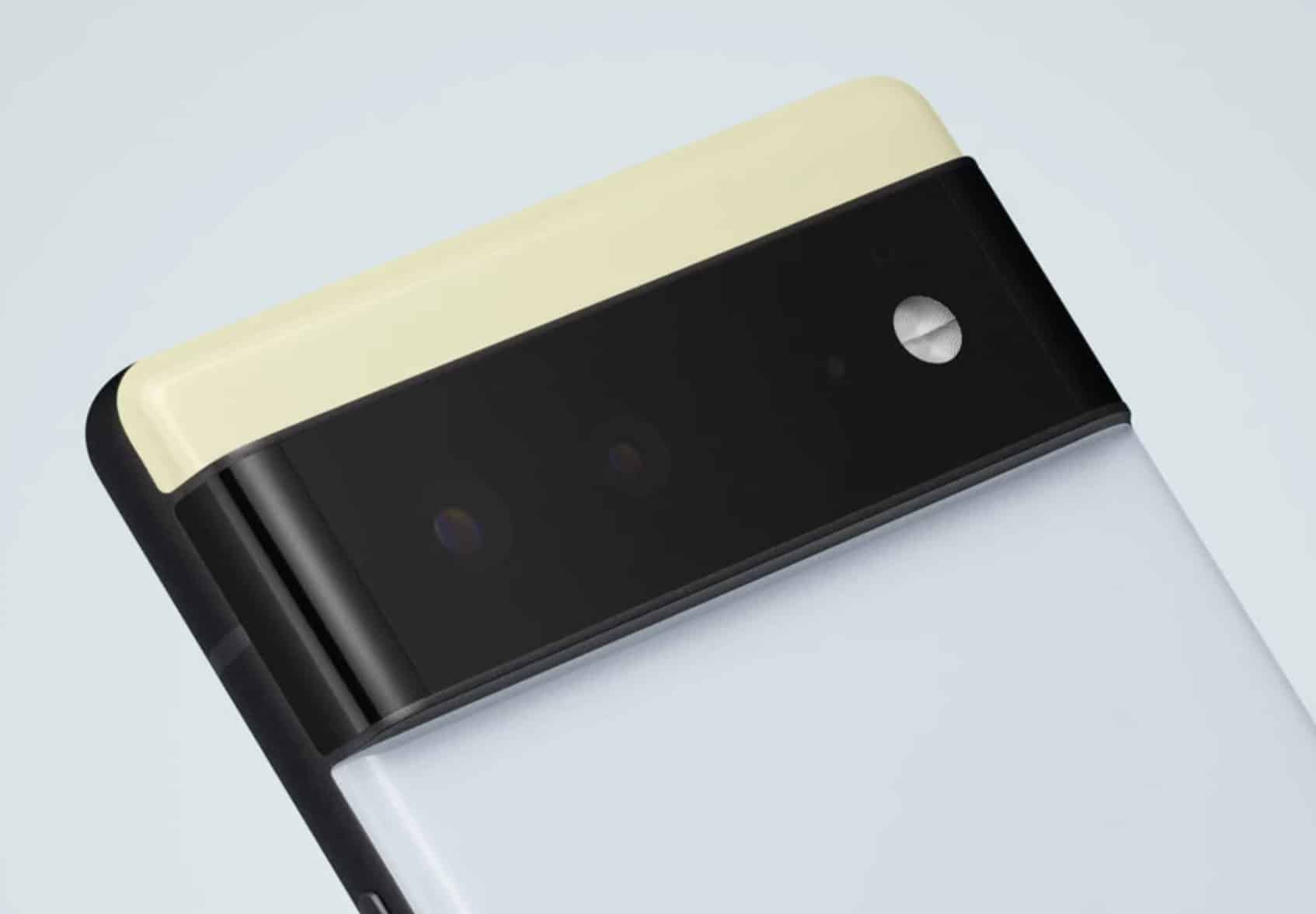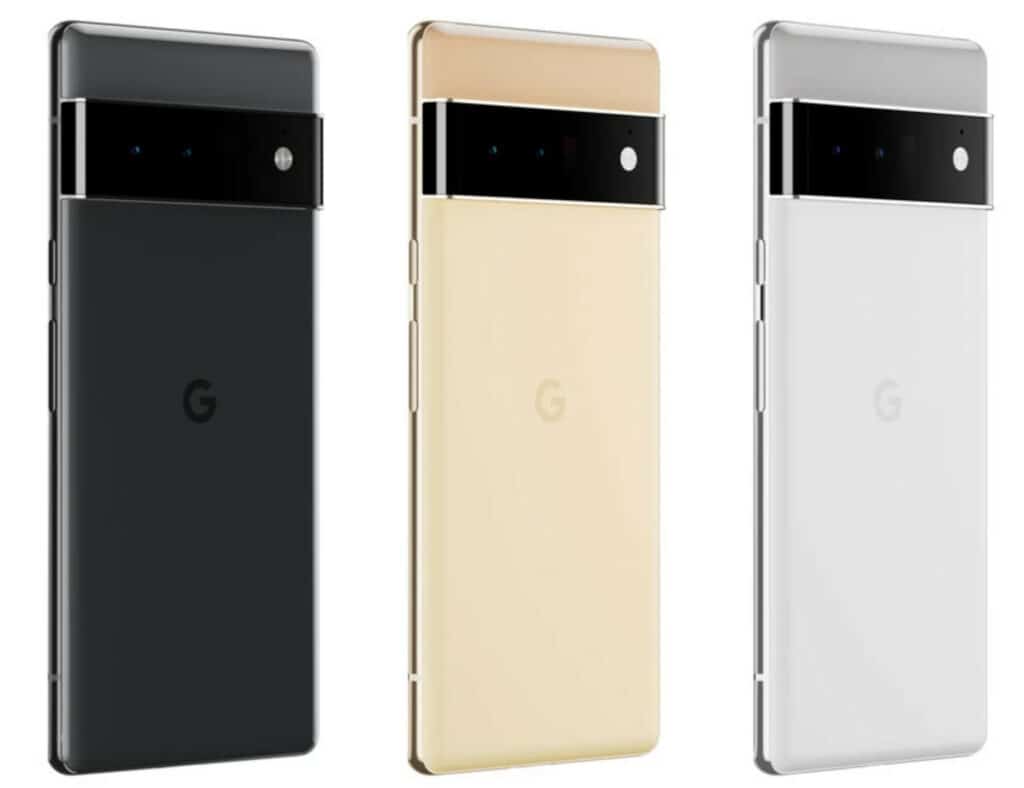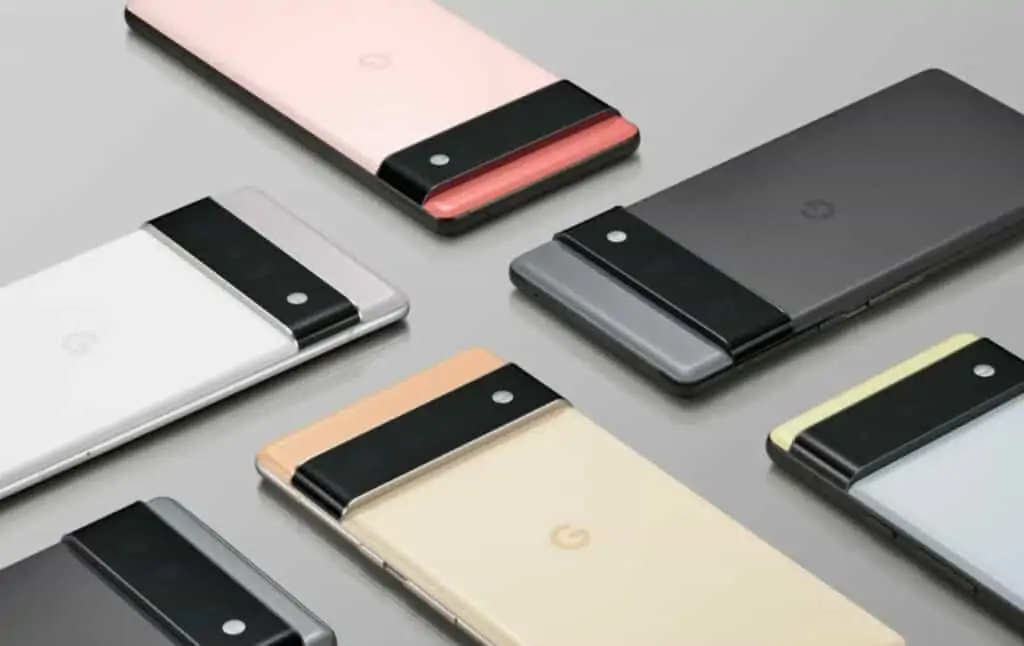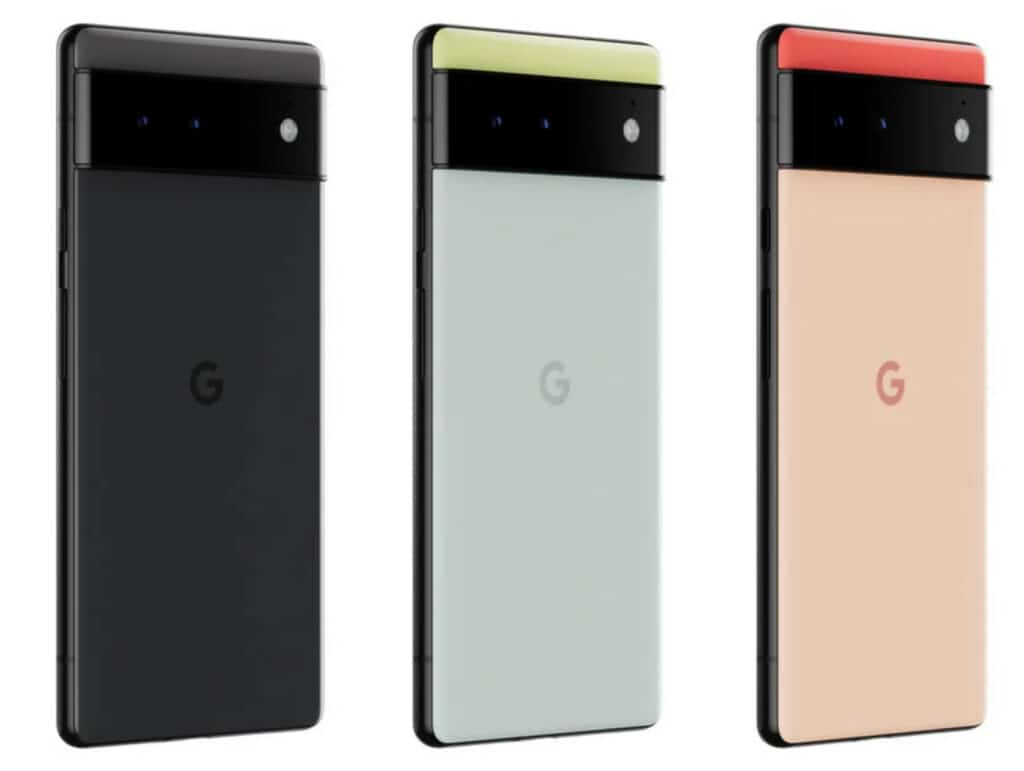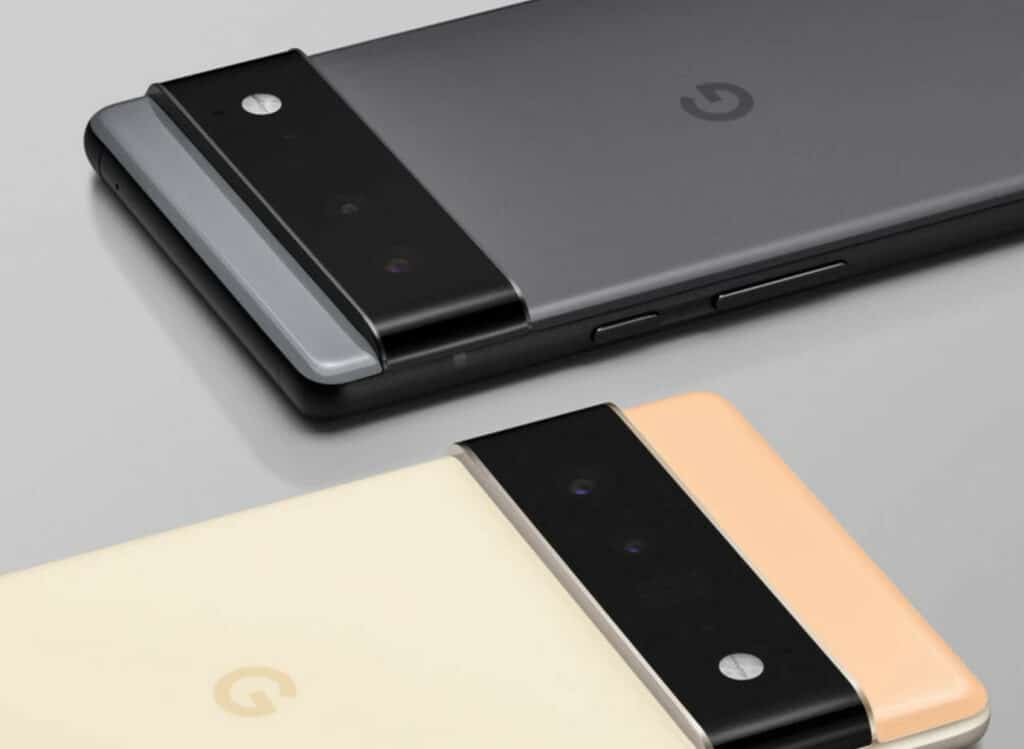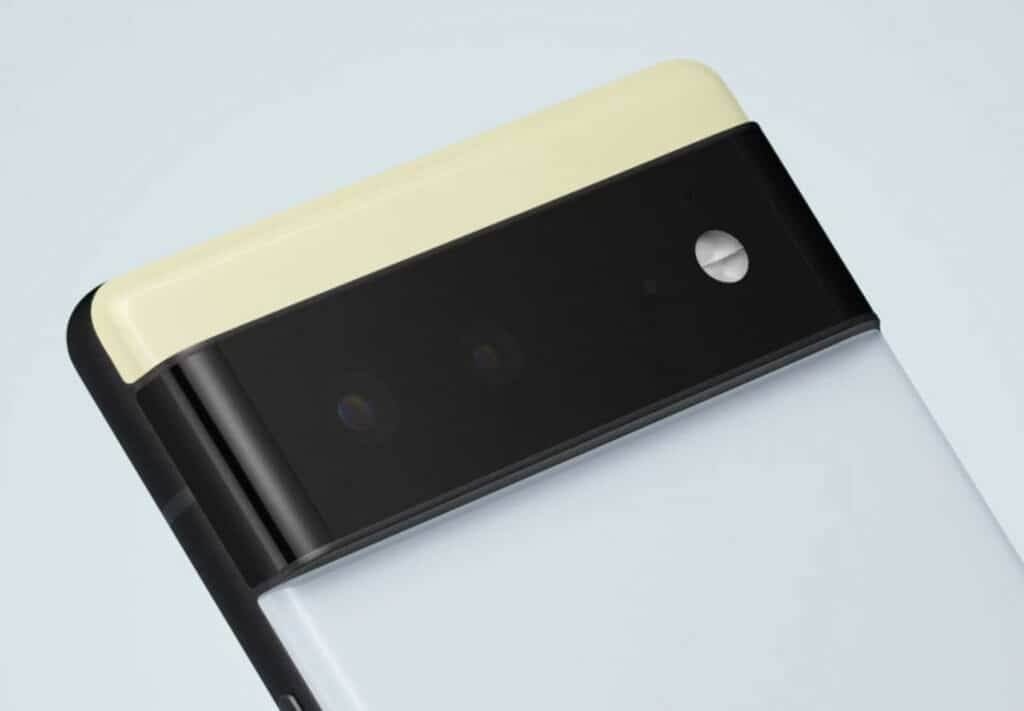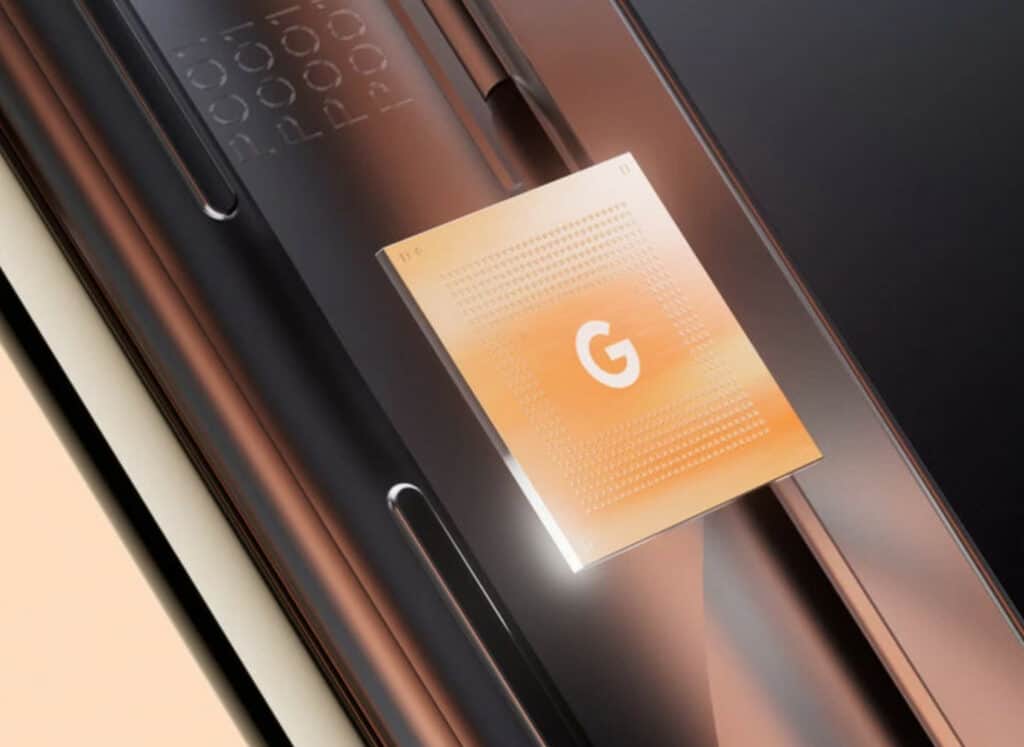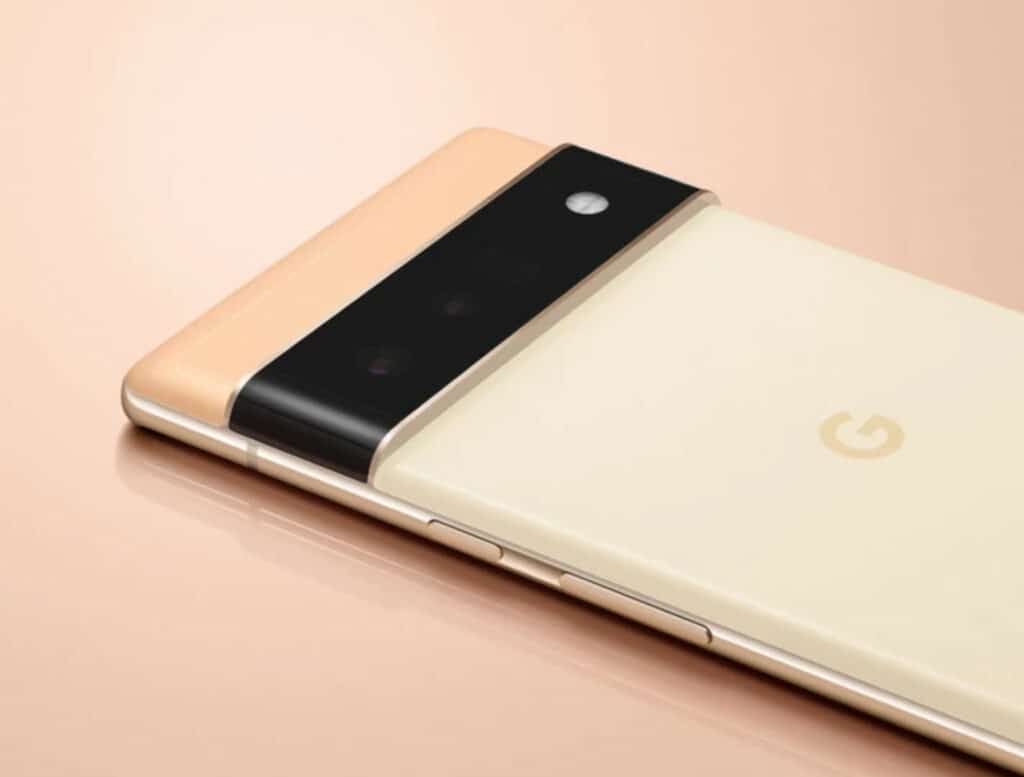Google dropped an email to the media yesterday that confirmed plenty of bits and bobs about its Pixel 6 and Pixel 6 Pro, including its new Google Tensor CPU…
This doesn’t happen very often, but Google has just pre-confirmed the Pixel 6 and Pixel 6 Pro ahead of the handsets’ Q4 launch and release date.
As expected, there’ll be two phones – the 6 and the 6 Pro – and both will be powered by Google’s first custom CPU, now known as Google Tensor.
Google included some images of the new phones, they look exactly the same as the leaks, with that protruding, retro camera module bump on the rear.
The camera module bump does serve a purpose though: Google says the new camera tech was too big to fit into a small box-shaped module.
The Pro model in the Pixel 6 series will ship with three cameras in its module, as well as a 4x optical telephoto lens. Each model will come in three color options too, as well in “light polished aluminum” for the Pro and matte finishes for the Pixel 6 phones.
What Did Google Confirm?
The main thing, besides images of the phones themselves, was the fact that Whitechapel will be officially known as Google Tensor. I think I preferred Whitechapel, as names go. But at least Google’s first custom CPU is now official and coming inside The Big G’s next Pixel phones.
Google also confirmed that it has been working on Google Tensor for several years, meaning this is something the company has put a lot of time and resources into. Tensor will be built for “performance” and have plenty of native AI abilities.
This reveal was more about Google Tensor than the Pixel 6 and Pixel 6 Pro. Google knows this is a big deal, so it wants to keep its audience engaged and interested in the Pixel 6, following Apple and Samsung’s big releases during August and September.
The Pixel 6 and Pixel 6 Pro are expected to get a release date in October, so they’ll launch and hit the market later than Apple’s iPhone 13 and Samsung’s new line-up of foldable phones.
Google Tensor Gets Official
Details about Tensor were deliberately vague, but Google did confirm that it features a Titan M2 security core that’d make its Pixel 6 and Pixel 6 Pro the most secure phones on the market (at least, that’s the case according to Google).
“This is the biggest innovation in Pixel we’ve made to date, designed in collaboration with our AI and Android teams to deliver the best experience at the intersection of hardware, software and AI for years to come,” said Sundar Pichai CEO of Google.
Android 12 & Material You
At the heart of the Pixel 6 and Pixel 6 Pro will be Android 12 and Google’s Material You software. Google says its next installment of Material You will push the boundaries of machine learning by adding in support for things like voice commands, translation, dictation, and captioning.
Is The Pixel Phone We’ve Been Waiting For?
For the last couple of years, Google has kept its Pixel phones deliberately conservative. The Pixel 4a was great, and the Pixel 5 has been my daily driver for almost 12 months now – both are great phones, perfect for any type of modern user.
But given the pace at which Apple and Samsung are developing their respective flagship models, it would appear that Google wants to, once again, start challenging them with its own hardware. And this is where the Pixel 6 Pro comes into play.
The Pixel 6 Pro, at least on paper, will be aimed at taking on Apple’s iPhone 13 Pro Max. It’ll match it in nearly every department from imaging to design and display tech. But ironically it will be Google Tensor where the gap is; Apple’s A15 CPU will almost certainly run rings around Google’s CPU.
Tensor will still be good. But the important thing is that Tensor is now a thing. Development will be rapid and I don’t think it’ll be too long before we start seeing Tensor inside Chromebooks and other Google-branded products.
And who knows, by the time Google releases the Pixel 8 and Pixel 8 Pro, it could well be matching Apple’s A-series chips for performance.
